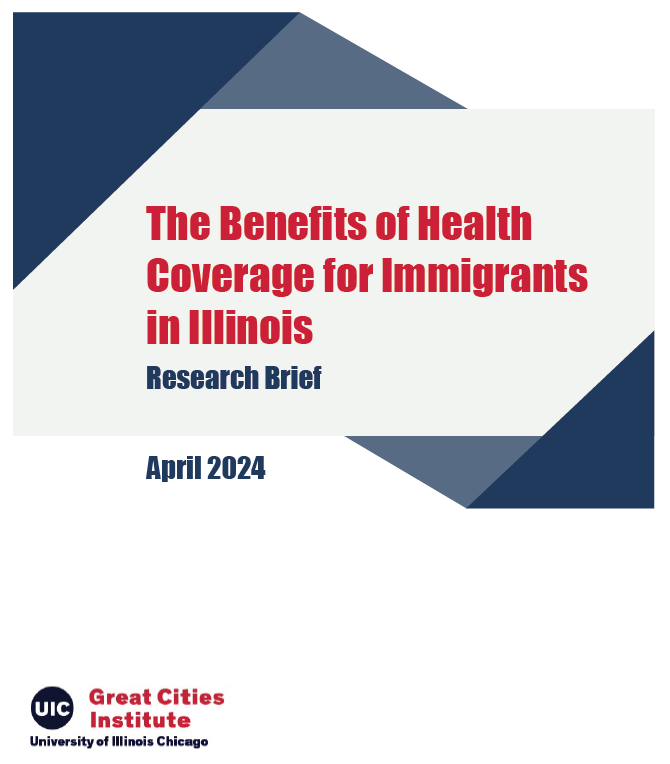
The Benefits of Expanding Health Coverage for Immigrants in Illinois
On April 26, 2024, a symposium was hosted by the Healthy Illinois Campaign that brought together immigrant rights advocates, health policy experts, and community leaders to discuss health coverage for immigrants in Illinois. At the event, Great Cities Institute released and presented findings from a research brief titled, “The Benefits of Health Coverage for Immigrants in Illinois.” The research brief was commissioned by the Healthy Illinois Campaign and highlights the importance and impact of state-run healthcare programs that benefit noncitizens, demonstrating the diverse economic and health benefits, as well as the financial hardships faced.
The event featured speakers who emphasized the need for fully funding health care programs for noncitizens, particularly, the Health Benefits for Immigrant Seniors (HBIS) and Health Benefits for Immigrant Adults (HBIA) in Illinois. These programs provide essential health coverage to low-income noncitizens who do not qualify for Medicaid due to their immigration status. The attendees discussed the programs’ successes, ongoing challenges, and the critical need for legislative support to ensure sustainability.
Below are key findings from the GCI research brief:
1. Program Costs:
-
- In fiscal year 2023, the combined cost of HBIA and HBIS was $621 million, representing 1.8 percent of the state’s total budget.
- Put in the context of the entire state budget, HBIA and HBIS accounted for only 0.6 percent of the total budget.
2. Economic Contributions:
-
- Health coverage improves labor force participation, expanding the tax base and reducing the need for further financial assistance.
3. Health and Financial Benefits:
-
- Access to health coverage reduces financial strain and medical debt for uninsured noncitizens.
- Insuring noncitizens improves their children’s developmental outcomes in terms of their socioemotional development and educational attainment.
4. Preventive Care and Cost Reduction:
-
- Health coverage leads to increases in early disease detection, reducing long-term medical costs.
- Access to medical coverage improves health outcomes and leads to increases of routine checkups and preventive care.
Tovia Siegel, the Director of the Healthy Illinois campaign, called for continued support and full funding for these vital programs. “We recognize the real fiscal challenges facing the state but urge both the General Assembly and the governor to pass an FY25 budget that fully funds the existing HBIA and HBIS programs as they currently exist in statute, with no caps and no co-pays,” Siegel stated.
The event and accompanying research brief highlight the ongoing debate over noncitizen health care in Illinois. Advocates stress that providing comprehensive health coverage to noncitizens is not just a matter of health equity but also an investment in the state’s economic and social well-being. As lawmakers deliberate future budgets, the findings of the research brief underscore the importance of maintaining and expanding these critical health programs.



